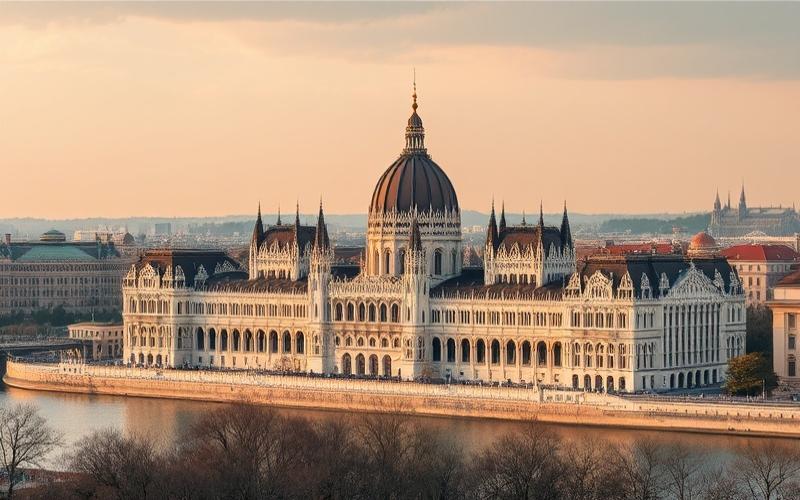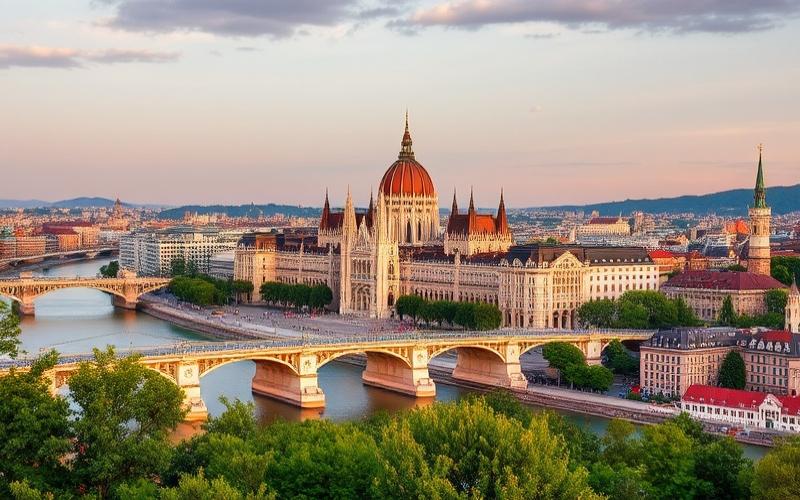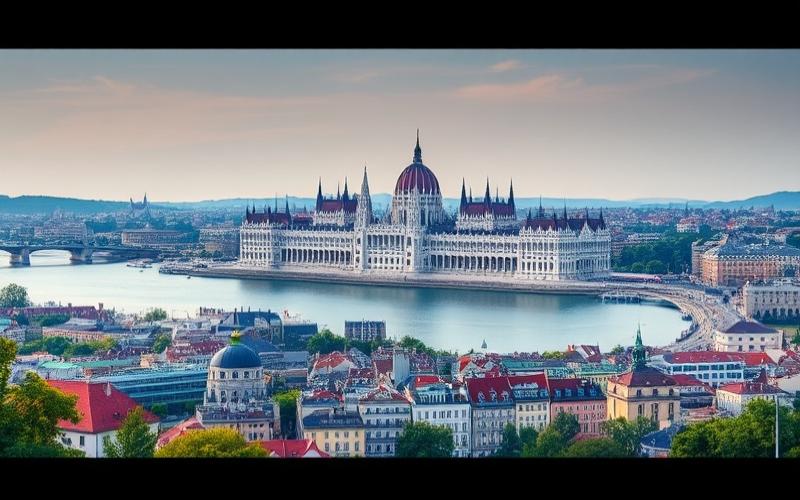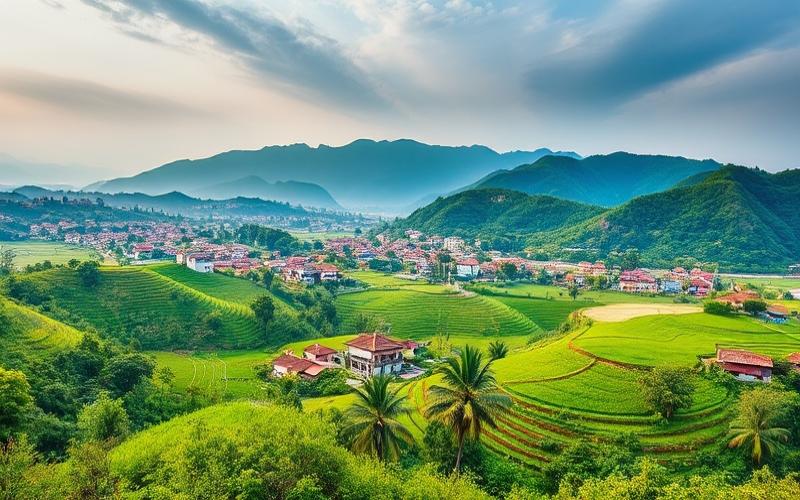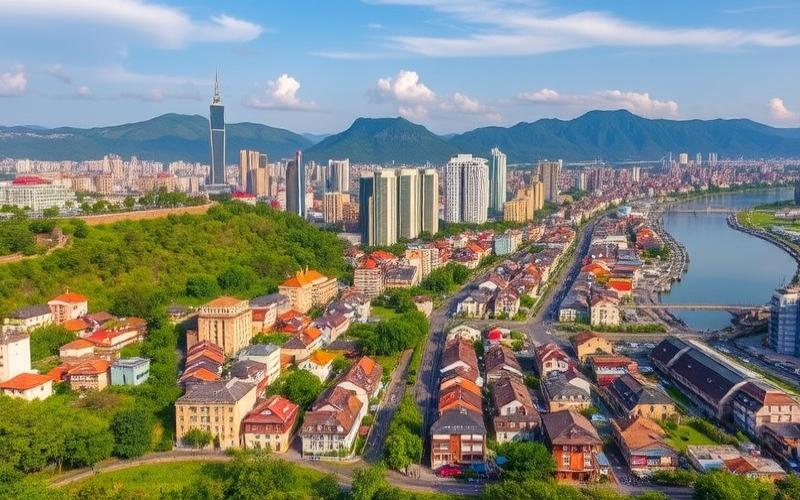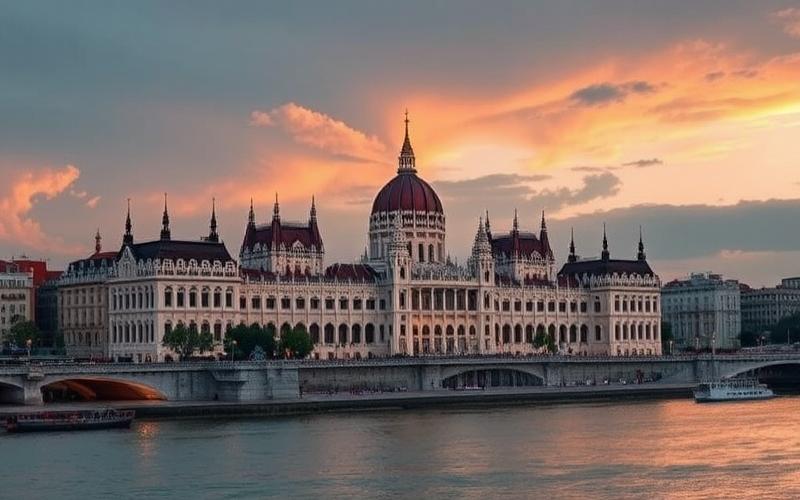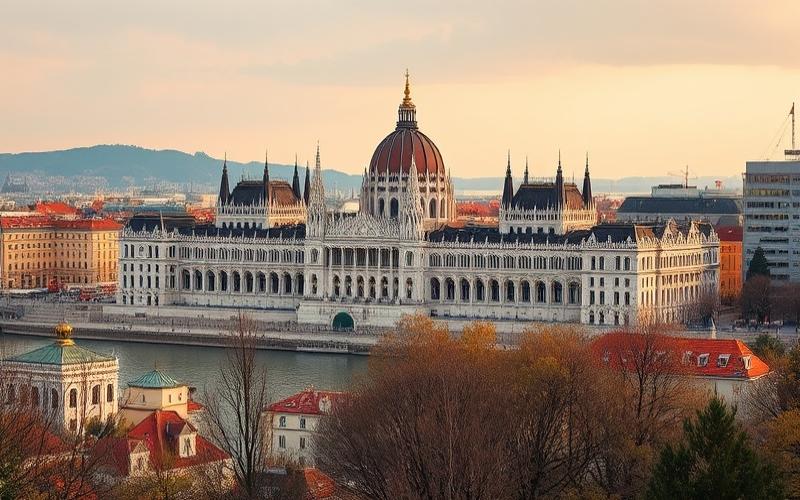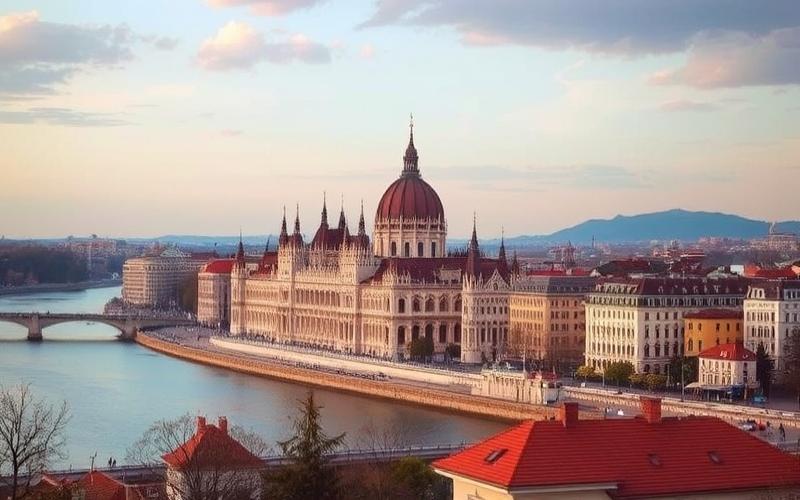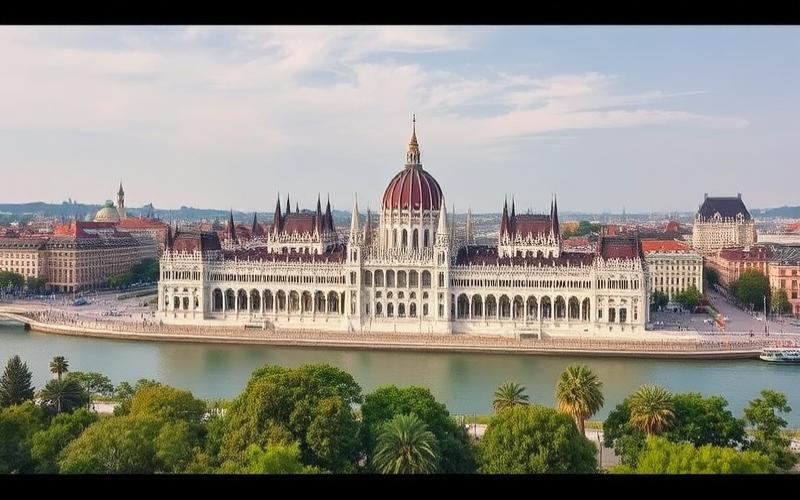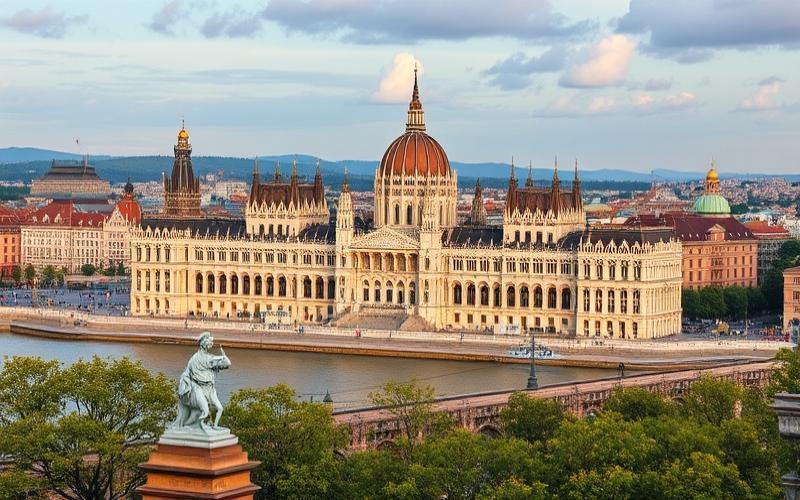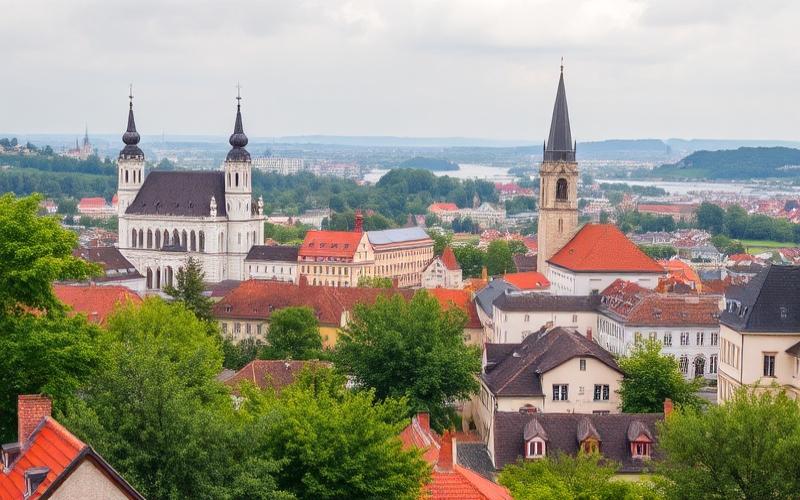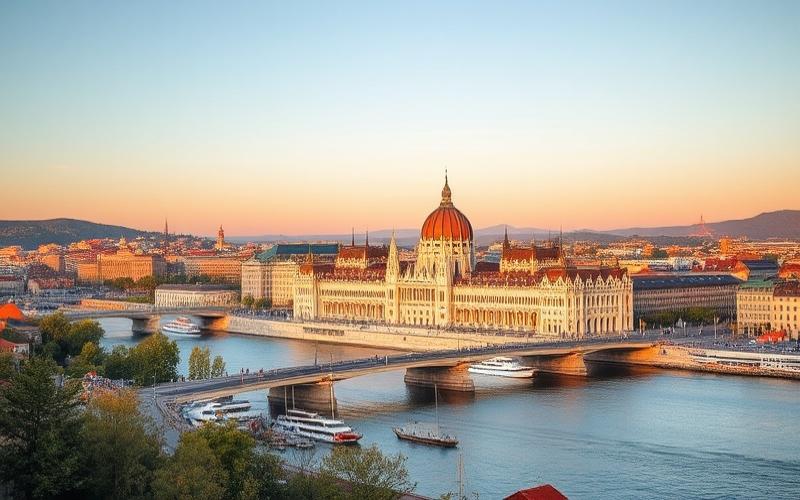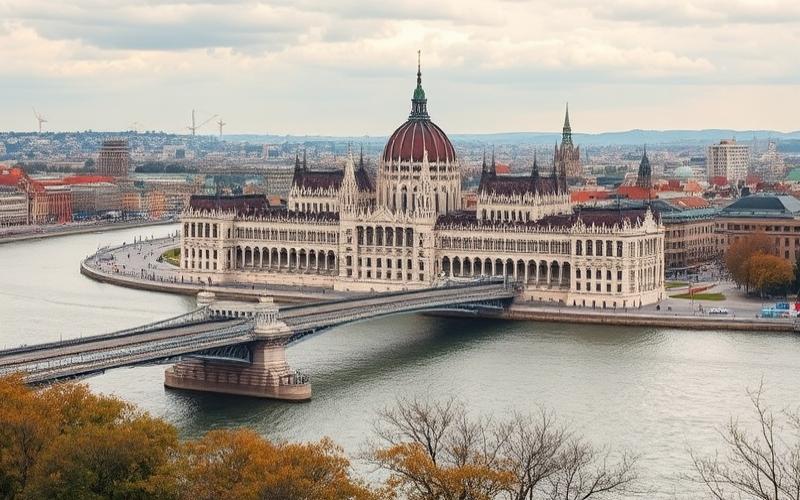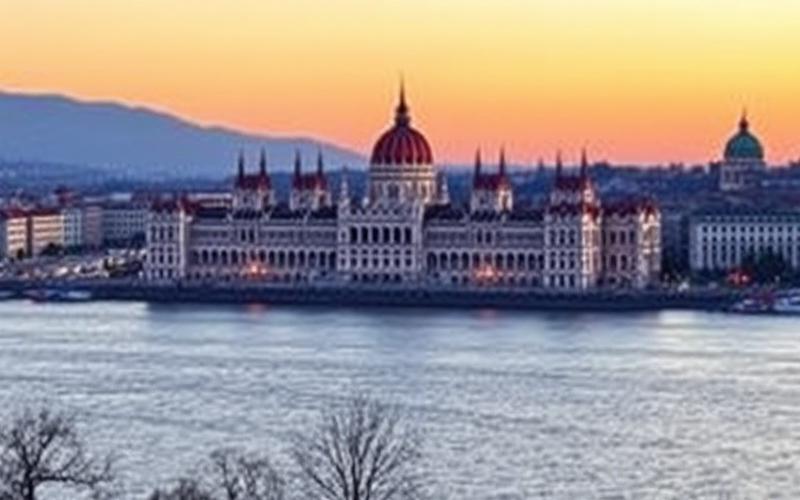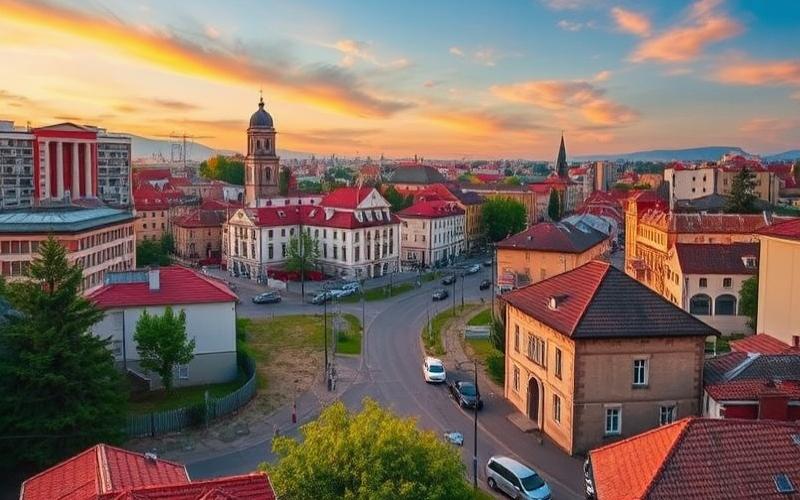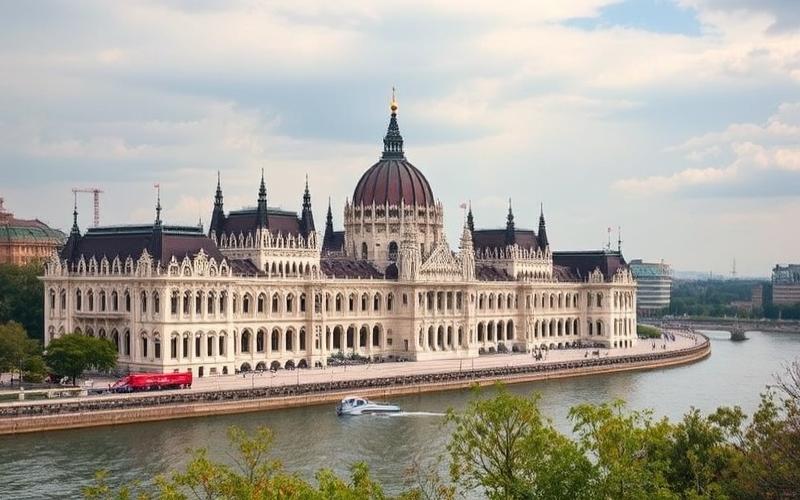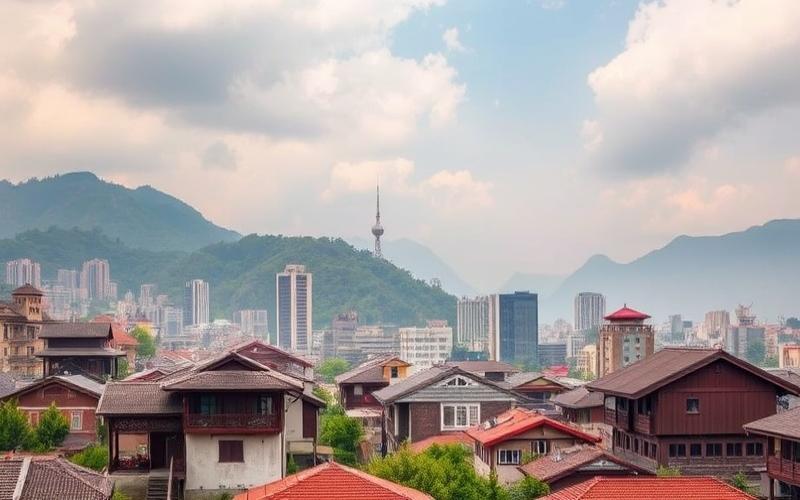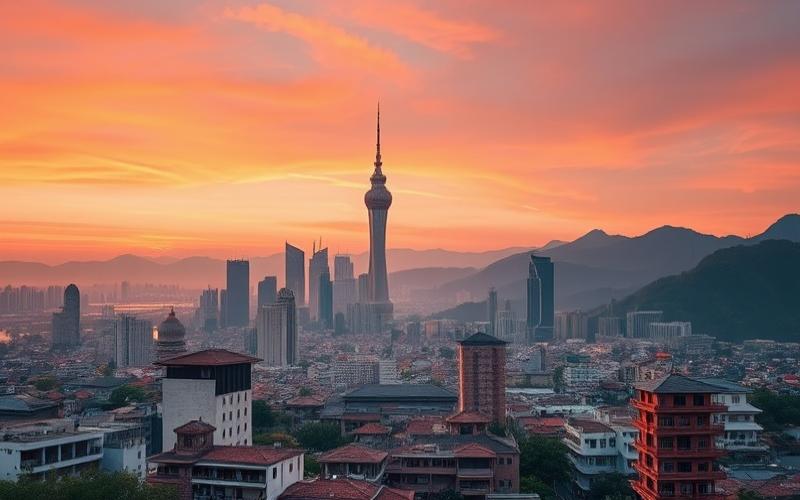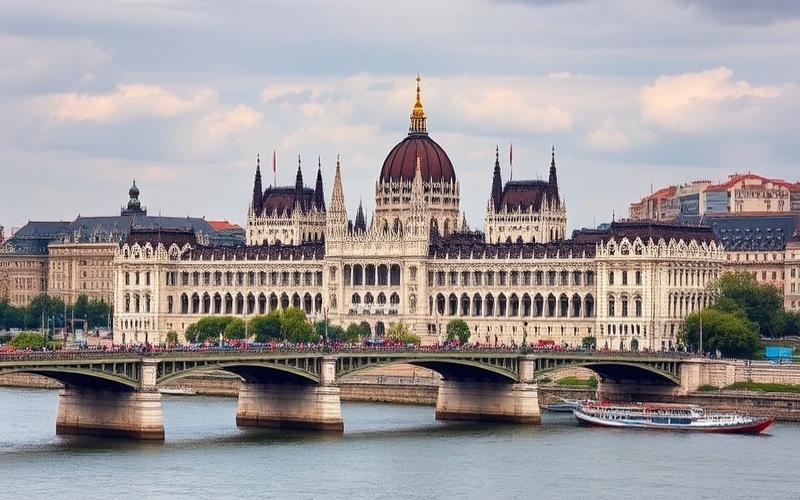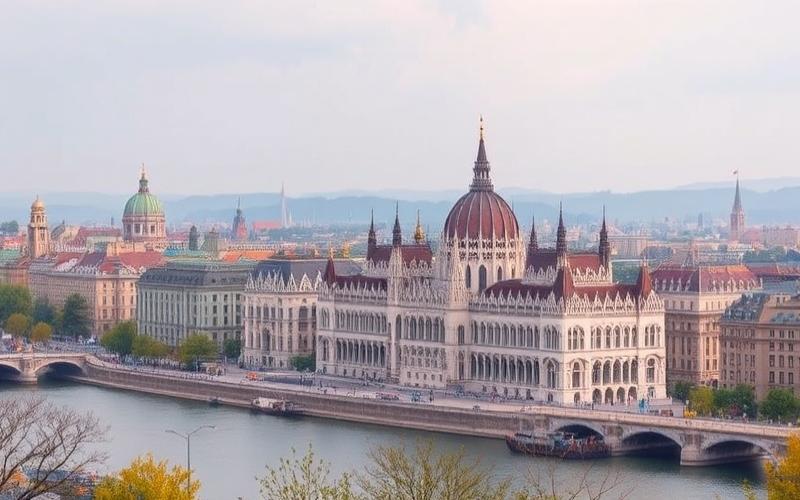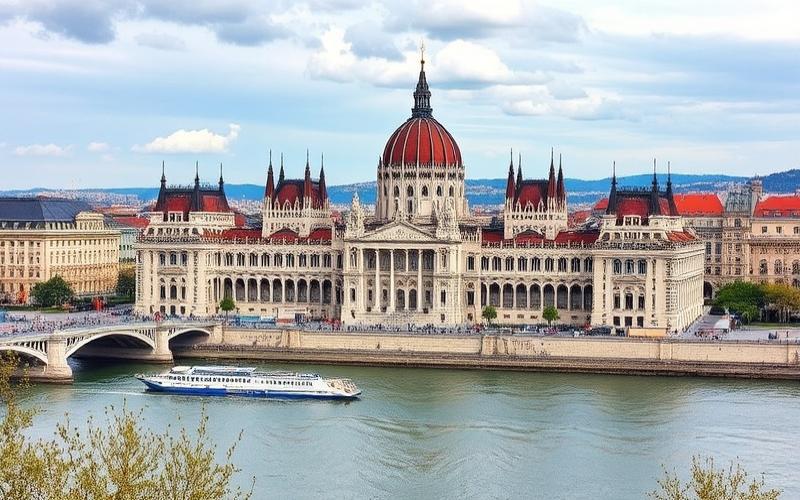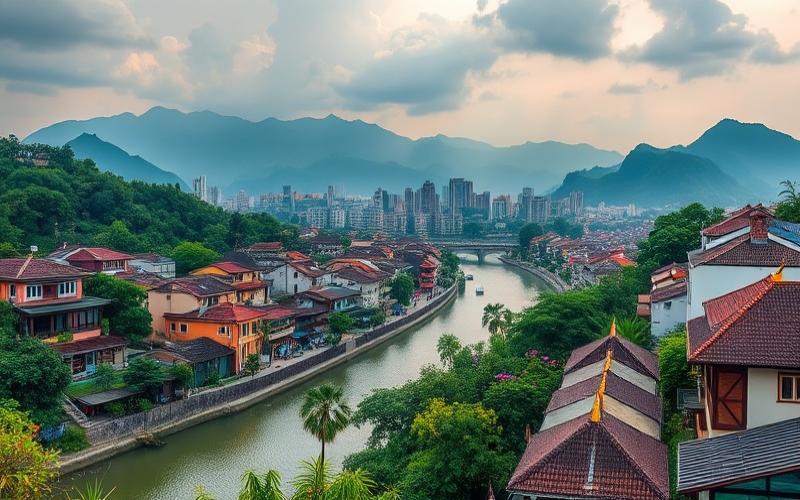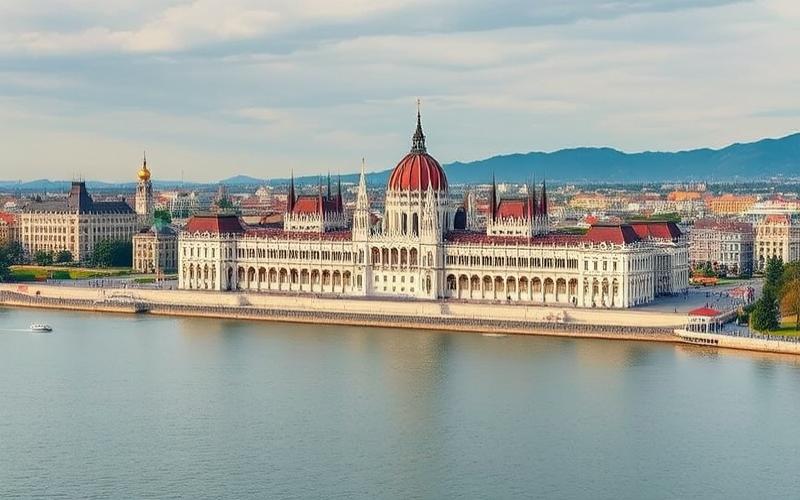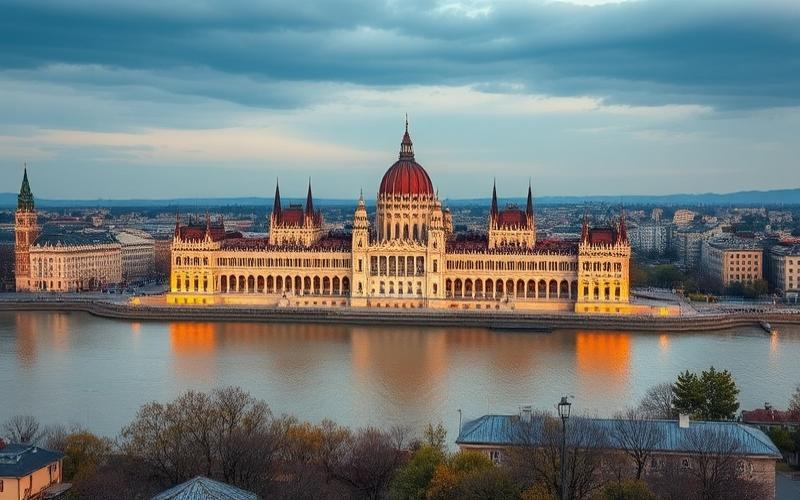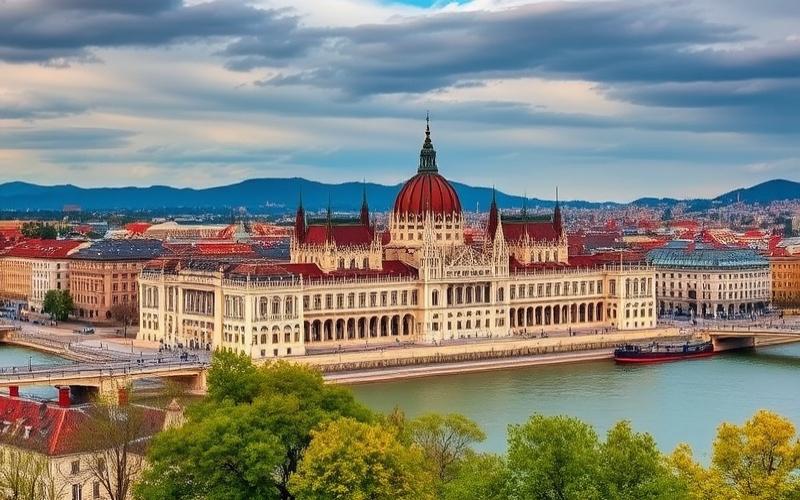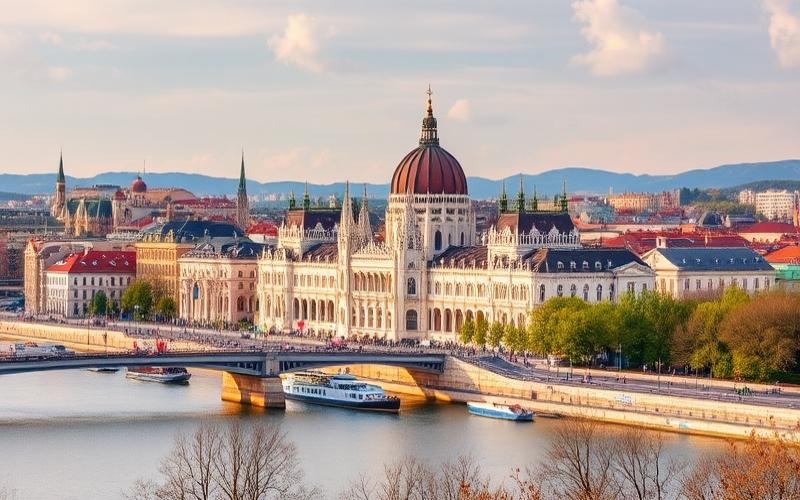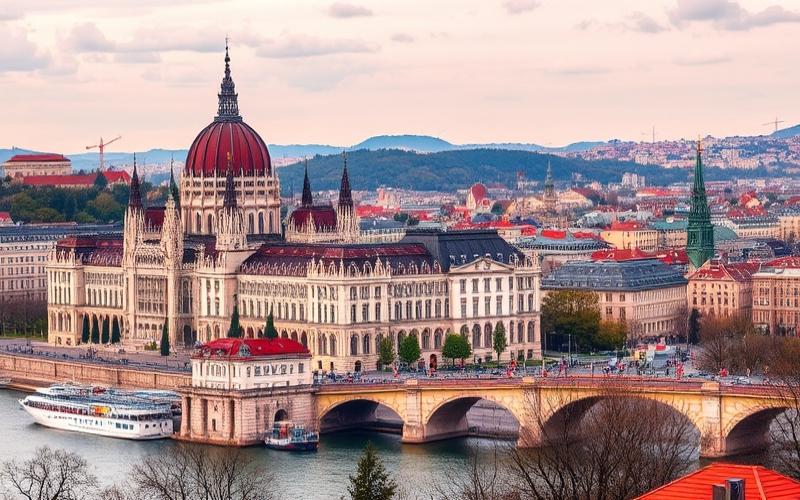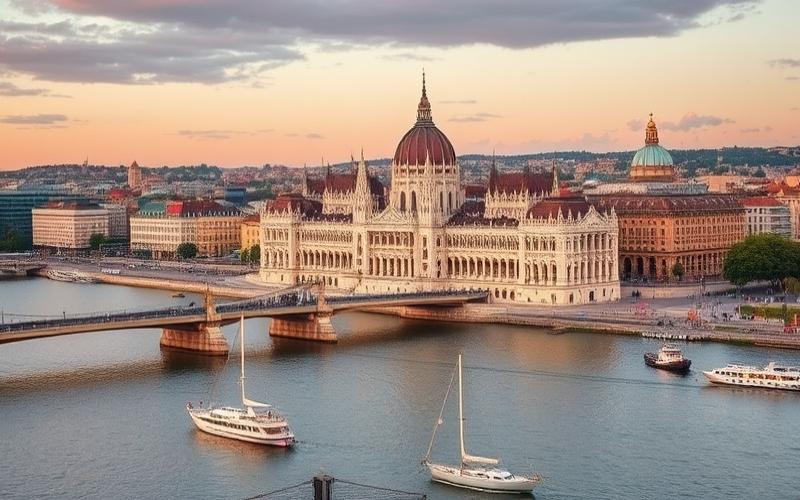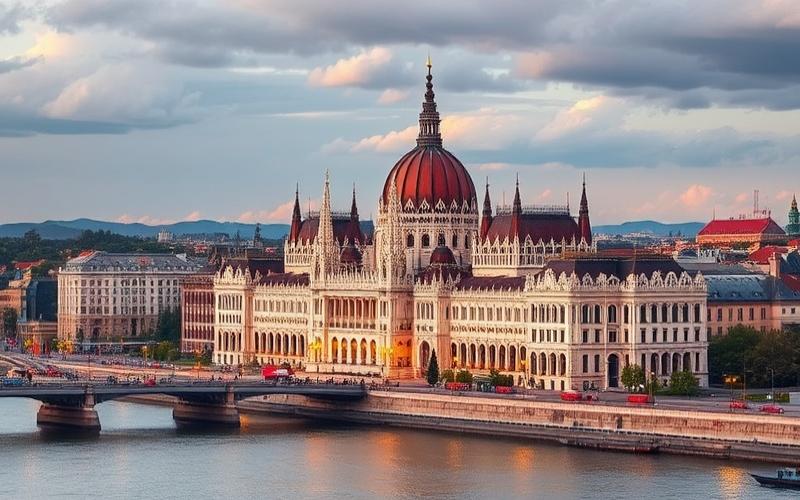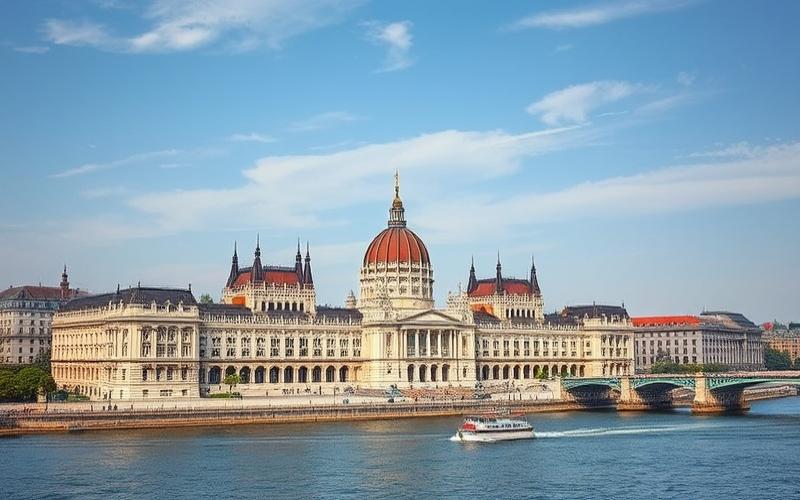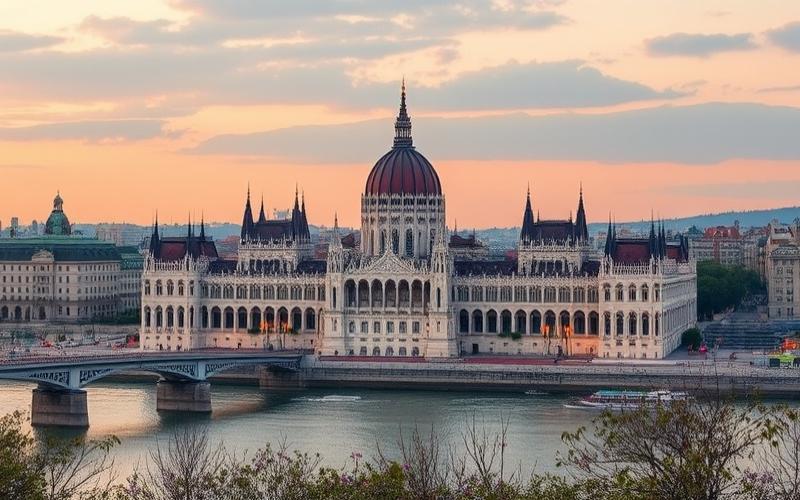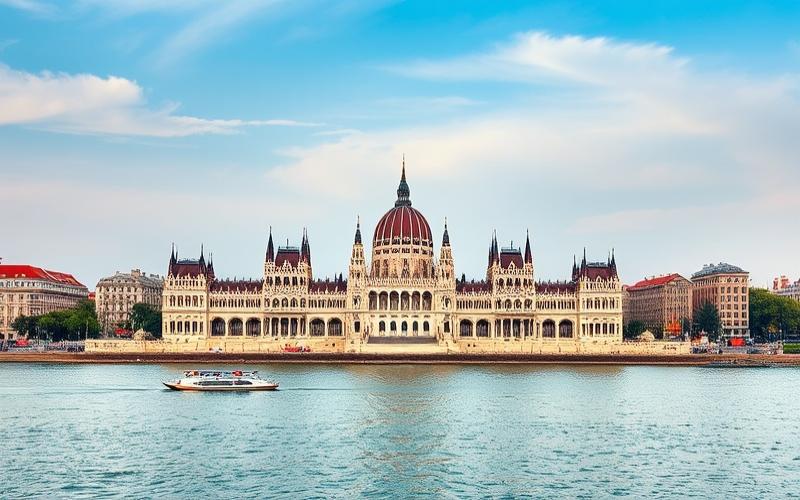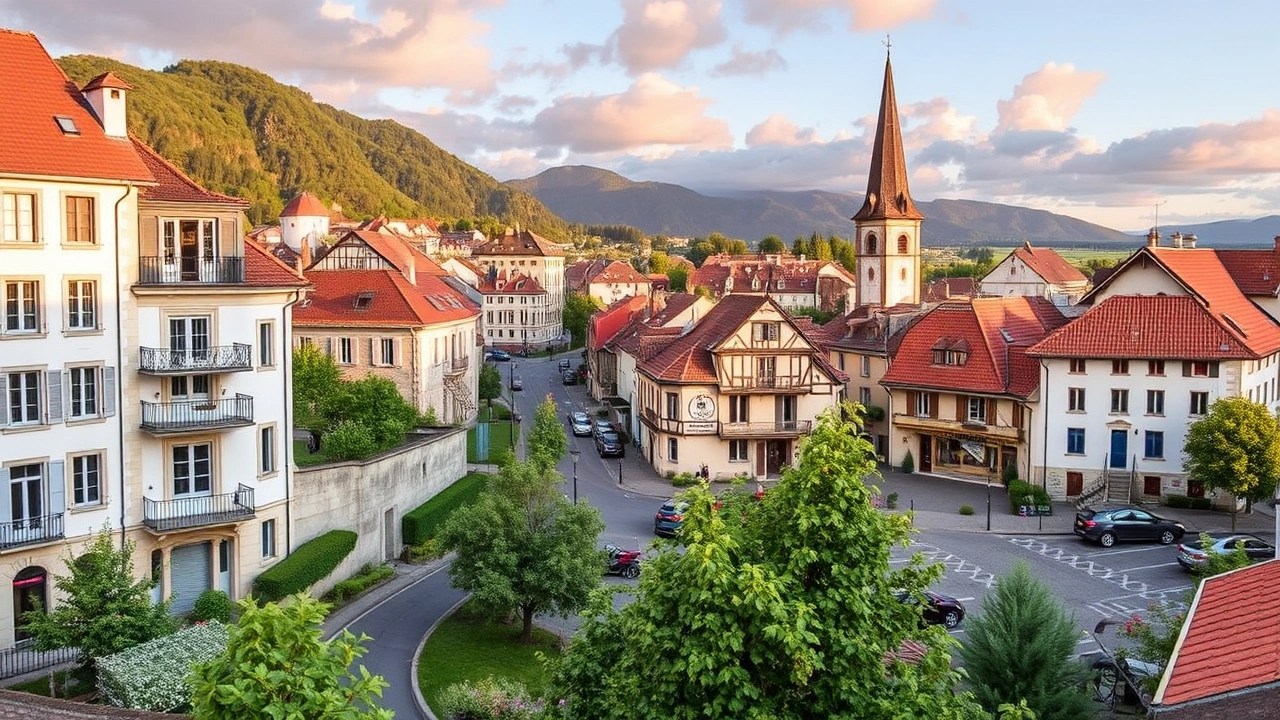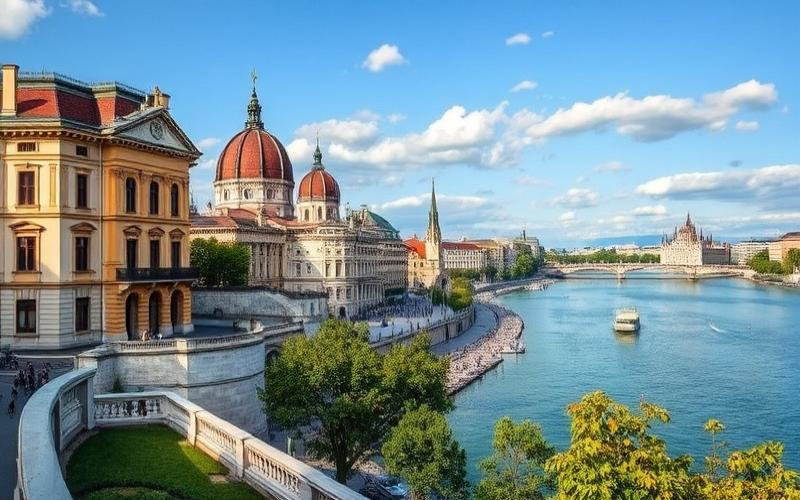
 Published on and written by Cyril Jarnias
Published on and written by Cyril Jarnias
Buying a Hotel in Hungary: An Investment Opportunity
Purchasing a hotel in Hungary can be a fascinating and lucrative venture, provided you approach the project with proper preparation and a thorough understanding of the local market.
With its rich cultural heritage, breathtaking landscapes, and growing economy, Hungary represents an exceptional opportunity for savvy investors.
This article provides a comprehensive checklist to navigate the crucial steps of buying a hotel in this country, highlighting the legal, financial, and operational aspects that should not be overlooked.
Whether you’re an experienced investor or new to the hotel industry, having a well-defined strategy will help make your project a success.
Hungarian Hotel Market Overview
The Hungarian hotel market shows dynamic growth, supported by a tourism boom and consistent investment in accommodation offerings. Budapest remains the main driver, with nine new hotels planned for 2025 and nearly 3,700 additional rooms under construction. This expansion also extends to the capital’s outskirts and areas near the airport, such as the new TRIBE Budapest Airport hotel targeting business travelers and digital nomads.
Key Sector Trends:
- Travelers now prioritize authentic and local experiences, boosting demand for boutique hotels and eco-friendly establishments.
- Service personalization (digital concierge, streamlined online booking) is becoming essential.
- Wellness-focused amenities (spas, fitness) are particularly sought after in the luxury segment.
High-Growth Areas & Emerging Regions:
- Budapest remains the premier destination thanks to its cultural heritage and nightlife.
- Cities like Debrecen or Pécs are seeing a notable increase in tourist flow due to their cultural festivals and proximity to attractive natural sites.
- Lake Balaton’s seasonal hotel offerings are growing with the emergence of innovative establishments tailored to summer tourism.
| Region | Tourism Growth | Dominant Typology |
|---|---|---|
| Budapest | Very High | International Hotels |
| Lake Balaton | Seasonal | Resorts & Boutiques |
| Debrecen/Pécs | Emerging | Boutique Hotels |
Influential Economic Factors:
The hotel sector is projected to generate $805 million in revenue in 2025, with an estimated annual growth of 6.11% until 2030.
Hungary recently surpassed the symbolic milestone of five million annual guests; this increased attendance encourages the constant modernization of the hotel inventory.
Government policies aim to strengthen international appeal through investments in tourism infrastructure (transportation, digital promotion).
Evolution of Traveler Preferences:
- Search for unique experiences
- Preference for sustainable accommodations
- Heavy use of digital platforms for booking
Opportunities & Challenges for Foreign Investors:
Opportunities:
- Promising market supported by good value for money compared to neighboring capitals
- Policy favorable to tourism investments
Challenges:
Gradual increase in operational costs (skilled labor)
Strict regulation regarding real estate acquisition: foreign buyers must obtain special approval from the Hungarian government for land or property purchases; however, these procedures are generally facilitated in the tourism sector
Summary List:
- Opportunities: Stable Growth / Enhanced Attractiveness / Institutional Support
- Challenges: Administrative Processes / Increased Competition / Operational Costs
Dominant Hotel Chains:
International:
- AccorHotels
- Marriott International
- Hilton Hotels & Resorts
National:
- Danubius Hotels Group
- Mamaison Hotels
Prospects remain favorable thanks to local dynamism combined with political support. Thus, the Hungarian market continues to attract both major chains and independent investors eager to benefit from an environment conducive to hotel development.
Good to Know:
The hotel market in Hungary is experiencing remarkable growth, particularly in the capital Budapest, which remains the most sought-after tourist destination, as well as in emerging regions like Lake Balaton and thermal villages. These areas benefit from rising tourist attendance, supported by government policies favorable to sector development. Traveler preferences are shifting towards wellness-focused and cultural experience stays, creating opportunities in the boutique hotel and eco-friendly accommodation sector. The economic environment is influenced by land ownership regulations that require foreign investors to navigate rigorous formalities, although they offer attractive prospects. While international brands like Marriott and Accor play a dominant role, several Hungarian chains such as Danubius and Hunguest are gaining popularity. In 2022, the average hotel occupancy rate was around 65%, a figure increasing compared to previous years, highlighting an encouraging post-pandemic recovery.
Essential Steps for Acquiring a Hotel in Hungary
Market Research
Analyzing the Hungarian hotel market is a crucial step to identify opportunities and anticipate challenges. Hungary attracts a growing number of visitors, with over five million tourists welcomed in 2025, largely thanks to Budapest, the hub of urban and business tourism, as well as thermal regions, renowned for their wellness appeal. Competition remains moderate, with approximately 4,800 hotel establishments, while demand is supported by steady tourism growth and a marked interest in authentic experiences and niche hotels. Current trends favor eco-friendly accommodations, personalized services, and digital booking platforms.
Due Diligence
Due diligence revolves around several essential aspects:
- Financial Audit: Analysis of balance sheets, debts, financing contracts, profitability, cash flow history.
- Legal Verification: Check of property titles, compliance of operating permits, absence of ongoing disputes, adherence to local standards.
- Operational Review: Assessment of current contracts (suppliers, staff, maintenance), asset inventory, verification of licenses (hotel, food service, safety, hygiene).
- Potential Risks: Analysis of customer claims, online reputation, compliance with environmental and health obligations.
Financing
Several financing options are available for acquiring a hotel in Hungary:
| Financing Option | Main Characteristics |
|---|---|
| Local Bank Loan | Classic solutions for investors with solid contribution. |
| Private Investors | Partnerships, family offices, specialized funds. |
| Grants and Public Aid | Government or European programs for tourism, renovation, digitalization, or sustainable development. |
| Real Estate Leaseback | Alternative to limit initial contribution and spread costs. |
Negotiation and Offers
- Prepare a strong offer dossier, including market analysis, operational plan, and valuation justification.
- Rely on an independent appraisal to set a fair price.
- Anticipate negotiation margins while remaining firm on critical points (condition of facilities, hidden liabilities, warranties).
- Propose conditional clauses (obtaining financing, satisfactory due diligence results).
- Maintain professional and transparent communication with the seller to build trust.
Operational Transition
To ensure a smooth takeover:
- Meet and evaluate existing staff, clarify contracts, and prepare an HR plan (recruitment, training, change management).
- Audit and upgrade IT systems (PMS, booking tools, customer review management).
- Maintain effective marketing strategies or revamp them to better target clientele (digital, social media, OTAs).
- Ensure service continuity for current customers to preserve the establishment’s reputation.
Legal and Regulatory Aspects
- Comply with Hungarian hospitality laws: registration obligations, safety standards, accessibility, hygiene.
- Understand local taxation: property taxes, VAT on accommodation, corporate taxes, tourist levies.
- Ensure environmental compliance (waste management, energy savings, obligations related to thermal installations if applicable).
- Anticipate regular inspections by health and tourism authorities.
Practical Tips to Overcome Obstacles
- Surround yourself with local advisors (lawyers, accountants, specialized consultants).
- Consider cultural differences: management styles, expectations of Hungarian and international clients.
- Train in local business practices and establish a network in the tourism sector to facilitate integration and quick resolution of regulatory or operational issues.
Good to Know:
To acquire a hotel in Hungary, market research is essential. Analyzing competition in strategic locations like Budapest or thermal regions, and assessing tourist demand allows you to identify opportunities. Due diligence must then be rigorous, including financial and legal investigations of the hotel, verification of operational permits, and attention to potential disputes. Regarding financing, explore options such as bank loans, contributions from private investors, or available grants. During negotiation and offer formulation, propose a competitive offer based on a solid assessment and prepare an operational transition plan encompassing human resource management, technological modernization, and robust marketing strategy. Finally, be vigilant about legal and regulatory aspects in Hungary, informing yourself about property taxes and environmental obligations, and prepare to overcome cultural and regulatory challenges to successfully complete the acquisition.
Due Diligence and Regulations to Know
Essential Due Diligence Steps When Buying a Hotel in Hungary:
- Examination of Property Titles
Verification of the validity and regularity of property titles with the Hungarian Land Registry (Ingatlan-nyilvántartás). This ensures there are no undisclosed mortgages, easements, or ongoing disputes on the property. - Environmental Investigations
Analysis of the site’s environmental compliance: identification of potential pollution, adherence to local waste management standards, presence of environmental permits if technical or energy installations are involved. - Financial Audits
Review of annual accounts and financial statements from the last three to five years, check of debts, off-balance sheet commitments, analysis of operating ratios (occupancy rate, margins, fixed/variable costs), and verification of the absence of tax or labor disputes. - Verification of Operational Licenses
Check the validity and transferability of operating licenses (accommodation, food service, alcoholic beverages, pools, ancillary activities). Verification of specific permits required for special facilities (spa, gyms, events, etc.). - Analysis of Current Contracts
Review of employment contracts, leases, commercial partnerships, and supplier contracts to identify transferable commitments or those needing renegotiation.
| Step | Essential Checkpoints |
|---|---|
| Property Titles | Land registry, mortgages, disputes |
| Environmental Investigations | Pollution, waste compliance, permits |
| Financial Audits | Accounts, debts, ratios, tax disputes |
| Operational Licenses | Validity, transferability, specific permits |
| Current Contracts | Review and analysis of transferability |
Main Hungarian Regulations to Comply With:
- Real Estate Investment Law
Compliance with the Law on Acquisition of Real Estate by Foreigners (1996. évi LXXVIII. törvény), requiring prior approval from local authorities for non-residents, with an administrative file to be submitted to the competent municipality or land department. - Tax Regulations Specific to the Hotel Sector
Application of VAT (ÁFA, standard rate 27%), local tourist tax (IFA), corporate tax (TAO), and compliance with reporting obligations to the National Tax and Customs Administration (NAV). - Health and Safety Standards
Compliance with provisions of the Hungarian Labor Code, fire safety standards (Országos Tűzvédelmi Szabályzat), health regulations for hospitality (Népegészségügyi Hivatal), and accessibility standards for people with reduced mobility.
Relevant Hungarian Administrative Authorities:
- Ingatlan-nyilvántartás (Land Registry)
- NAV (Nemzeti Adó- és Vámhivatal): tax and customs administration
- Önkormányzat (local municipality): issuance of certain permits
- Népegészségügyi Hivatal (National Public Health Authority)
- Katasztrófavédelem (National Disaster Management Authority): fire safety
Registration and Legal Compliance Process:
- Sign a sales agreement before a notary.
- Verify titles and obtain necessary administrative approvals.
- Submit the acquisition file to the land registry.
- Obtain or transfer hotel operating licenses.
- Declare the operation to the NAV for tax registration.
- Bring facilities into compliance with health and safety standards.
Key Takeaway:
Assistance from a lawyer specialized in Hungarian real estate law is highly recommended at every stage to secure the transaction, guarantee regulatory compliance, and avoid any legal or financial risk.
Good to Know:
When buying a hotel in Hungary, it is crucial to follow a rigorous due diligence process to ensure the success of the operation. Carefully examine property titles to ensure there are no disputes or undisclosed charges. Conduct environmental investigations to determine compliance with local standards, and perform financial audits to assess profitability and potential debts. Verify that the hotel possesses all required operational licenses. Comply with Hungarian regulations, including laws on real estate investments, tax obligations specific to the hotel sector, as well as health and safety standards imposed by authorities. Administrative bodies such as the National Tax and Customs Administration and local health agencies are essential for the registration and validation of real estate projects. Ensure you follow the required registration processes to guarantee the legal compliance of the purchase, relying on local experts to navigate the complexity of regulations.
Tourism Statistics and Trends in Hungary
Recent Tourism Statistics in Hungary
In May 2025, Hungary surpassed the five million visitor mark, reaching this figure eleven days earlier than the previous year. This performance represents an overall growth of 18% compared to last year, with 2.4 million domestic tourists and 2.6 million international tourists in the recent period. Growth is primarily driven by foreign visitors, whose numbers increased by 29% early in 2025, generating a 16% increase in international overnight stays.
Main Visitor Nationalities
The main nationalities of tourists in Hungary are:
- Germany
- Romania
- Italy
- United Kingdom
- Austria
The majority of these visitors prefer Budapest as a destination, but marked growth is also observed around Lake Balaton, in Gyula, and in the Bük-Sárvár region.
Most Popular Tourist Attractions
- Budapest: architectural heritage, thermal baths, dynamic cultural life
- Lake Balaton: largest lake in Central Europe, water and beach activities
- Mátra–Bükk Mountains: hiking, thermal resorts, nature
- Debrecen and Nyíregyháza: cultural centers and events
- Historical Sites: castles, churches, and traditional villages
Seasonal Trends and Impact on Hospitality
Peak attendance corresponds to:
- Easter and Spring Holidays: 20 to 36% increase in domestic tourism depending on the period
- Long Weekends in May: increase in occupancy and revenue
- Summer Season: international influx, particularly around Lake Balaton
The hotel market particularly benefits from these periods, with hotels being the predominant choice for foreign accommodation (86% of international overnight stays early in 2025).
Occupancy Rates and Hotel Sector Revenue
| Indicator | Value Early 2025 |
|---|---|
| Number of Tourist Establishments | 20,565 |
| Number of Commercial Hotels | 918 |
| International Overnight Stays | +16% (January 2025 vs 2024) |
| Revenue Generated (January) | 61.5 billion HUF (+21%) |
| Revenue Long Weekend in May | 16 billion HUF (+31%) |
Projections and Attractiveness for Hotel Investment
- Sustained Growth: Experts anticipate continued strong demand, driven by interest in cultural and natural destinations.
- Regionalization of Growth: Some regions like Budapest or Lake Balaton are experiencing rapid expansion, while others are progressing more slowly.
- Increase in Revenue and Attendance: The hotel sector directly benefits from the increase in flows, strengthening the appeal for investments in hospitality, particularly in high-growth areas.
Key Takeaway
The growth dynamics of Hungarian tourism, the diversity of visitor nationalities, marked seasonality, and the progression of occupancy rates and revenues make Hungary a very attractive market for hotel purchases, particularly in the most visited and expanding regions.
Good to Know:
In 2023, Hungary welcomed approximately 16 million tourists, mostly from Germany, Austria, and the United Kingdom. Budapest, with its legendary Parliament and thermal baths, as well as Lake Balaton, are among the most sought-after attractions. Tourism in Hungary is experiencing steady growth, with an annual increase of about 4% in revenue, favorably influencing the hotel market. The hotel occupancy rate often reaches 80% during the summer, while the winter peak focuses on Christmas markets. Investing in a hotel becomes attractive, as projections indicate a continuous increase in visits, with tourism revenue exceeding 10 billion euros by 2025. Seasons strongly influence tourist flows, prompting investors to target adapted strategies to maximize occupancy rates and profits.
Disclaimer: The information provided on this website is for informational purposes only and does not constitute financial, legal, or professional advice. We encourage you to consult qualified experts before making any investment, real estate, or expatriation decisions. Although we strive to maintain up-to-date and accurate information, we do not guarantee the completeness, accuracy, or timeliness of the proposed content. As investment and expatriation involve risks, we disclaim any liability for potential losses or damages arising from the use of this site. Your use of this site confirms your acceptance of these terms and your understanding of the associated risks.

